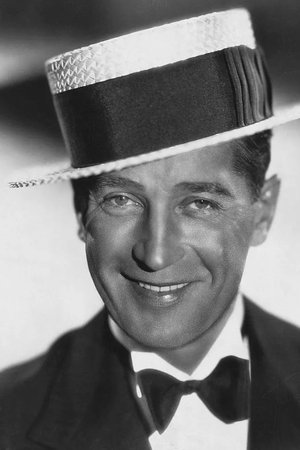Maurice Chevalier (1888-1972)
Alias:
Maurice Auguste Chevalier
Birthplace:
Paris, France
Born:
September 12, 1888
Died:
January 1, 1972
Maurice Auguste Chevalier (September 12, 1888 – January 1, 1972) was a French actor, cabaret singer and entertainer. He is perhaps best known for his signature songs, including "Livin' In The Sunlight", "Valentine", "Louise", "Mimi", and "Thank Heaven for Little Girls" and for his films, including The Love Parade, The Big Pond, The Smiling Lieutenant, One Hour with You and Love Me Tonight. His trademark attire was a boater hat and tuxedo. Chevalier was born in Paris. He made his name as a star of musical comedy, appearing in public as a singer and dancer at an early age before working in menial jobs as a teenager. In 1909, he became the partner of the biggest female star in France at the time, Fréhel. Although their relationship was brief, she secured him his first major engagement, as a mimic and a singer in l'Alcazar in Marseille, for which he received critical acclaim by French theatre critics. In 1917, he discovered jazz and ragtime and went to London, where he found new success at the Palace Theatre. After this, he toured the United States, where he met the American composers George Gershwin and Irving Berlin and brought the operetta Dédé to Broadway in 1922. He developed an interest in acting and had success in Dédé. When talkies arrived, he went to Hollywood in 1928, where he played his first American role in Innocents of Paris. In 1930, he was nominated for the Academy Award for Best Actor for his roles in The Love Parade (1929) and The Big Pond (1930), which secured his first big American hits, "You Brought a New Kind of Love to Me" and "Livin' in the Sunlight, Lovin' in the Moonlight". In 1957, he appeared in Love in the Afternoon, which was his first Hollywood film in more than 20 years. In 1958, he starred with Leslie Caron and Louis Jourdan in Gigi. In the early 1960s, he made eight films, including Can-Can in 1960 and Fanny the following year. In 1970, he made his final contribution to the film industry where he sang the title song of the Disney film The Aristocats. Description above from the Wikipedia article Maurice Chevalier, licensed under CC-BY-SA, full list of contributors on Wikipedia.
